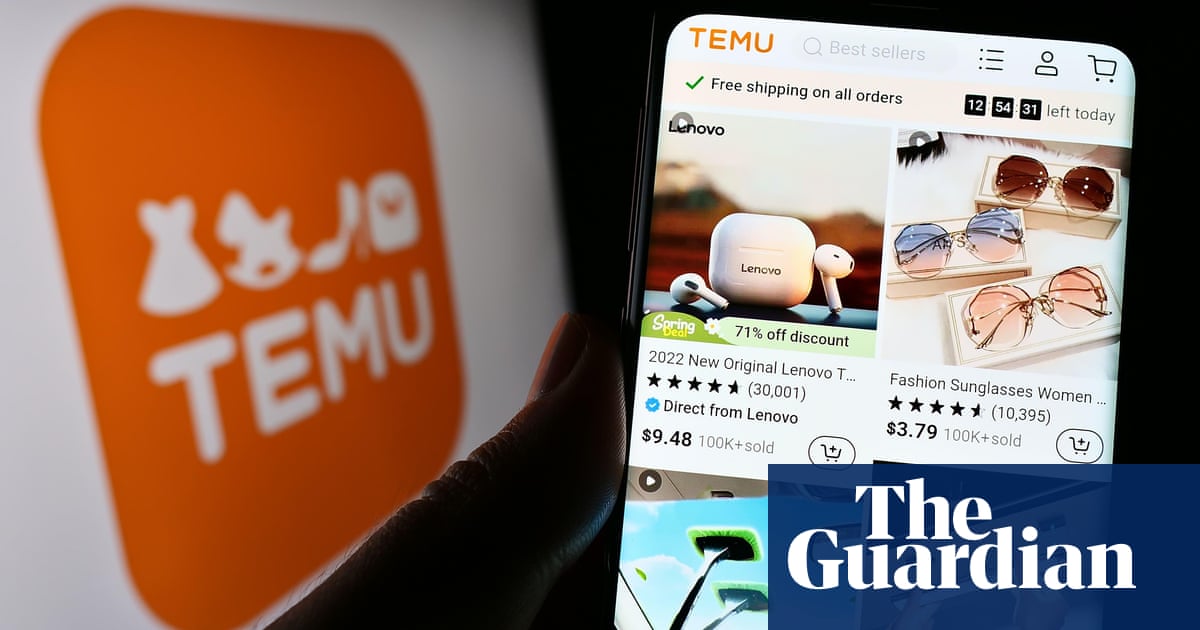The EU is moving forward with plans to impose customs duty on cheap goods in a shift that could hit imports from online retailers and harm a hoped-for London listing by the fast-fashion seller Shein.
The potential change comes amid growing disquiet among retailers based in mainland Europe, the UK and the US about rising competition from Chinese-linked marketplaces Shein and Temu, which exploit a loophole that excludes low-value items from import duty.
In the EU, the threshold for the levy is €150 (£127) and in the UK it is £135, enabling retailers such as Shein to ship products directly from overseas to shoppers in those markets without paying any import duty. In the UK, items valued at £39 or less also do not attract import VAT.
Subsidised postage costs in China make it more cost-effective for businesses based there to send cheap goods by air.
A European Commission spokesperson said: “In May last year we put on the table customs reforms for a simple, smarter and safer customs union. What we have proposed now is there is no exemption any more for packages valued at below €150.”
The e-commerce proposal must first be discussed and accepted by the European parliament, which sits again later this month.
Last year, 2.3bn items below the duty-free €150 threshold were imported into the EU, according to a report in the Financial Times that highlighted the potential change.
Imports from online retailers have more than doubled year on year to more than 350,000 items in April.
John Stevenson, an analyst at Peel Hunt, said that the impact of a change in the rules on Shein “would be huge depending on the territory”.
Some countries impose import duties of up to 30%, he said, and having to pay that would force Shein to either completely change its business model, put up prices or take a hit on profit.
“The whole model is based on not paying duty,” he said. “It would have a massive impact.”
Stevenson was quite sceptical that EU countries would be able to close the loophole in the short-term, given the complexity and cost of checking billions of parcels.
However, he said the issue would be high on investors’ list of concerns alongside potential ethical issues in its supply chain if Shein went ahead with launching a London listing, as is expected as early as this autumn.
Shein also faces increased competition from fellow social media-driven retailers including TikTok Shop and Temu, as well as the post-Covid return to the high street by shoppers which has helped the likes of Primark.
Research from Earnest Analytics found that Shein shoppers in the US allocated 43% of their online discount spending to the brand last month compared with 66% a year ago, just before TikTok transactions began.
Shein’s boss Donald Tang, who is currently on a “fact-finding” mission in Europe, has said he is “pro reform” of the import duty threshold. He told Politico: “We want to have fair competition around the world,” and the tax break was “not foundational to our success”.
after newsletter promotion
Shein said in a statement that it was “fully compliant with UK tax policies and pays applicable taxes including corporation tax, VAT and employment taxes”.
“Shein’s success comes from our ability to produce fashionable products for our customers. We keep prices affordable through our on-demand business model and flexible supply chain.
“This reduces inefficiency, takes out wastage of material, and lowers our unsold inventory. We pass this advantage to our customers, and this has driven our growth.”
UK retailers have called on the government to examine the loophole amid rising competition from Shein and Temu.
On Tuesday, Simon Roberts, the boss of Sainsbury’s and Argos, called on a new government to look at unfair taxes including business rates and import duty.
“I want to make sure that the loopholes that are currently in place are closed for some of the businesses that aren’t paying tax in the right way, so it’s a level playing field for everybody,” he said.
Theo Paphitis, the owner of the UK retailers Ryman and Robert Dyas, and the Next boss Simon Wolfson have also called on the UK government to review the loophole.

